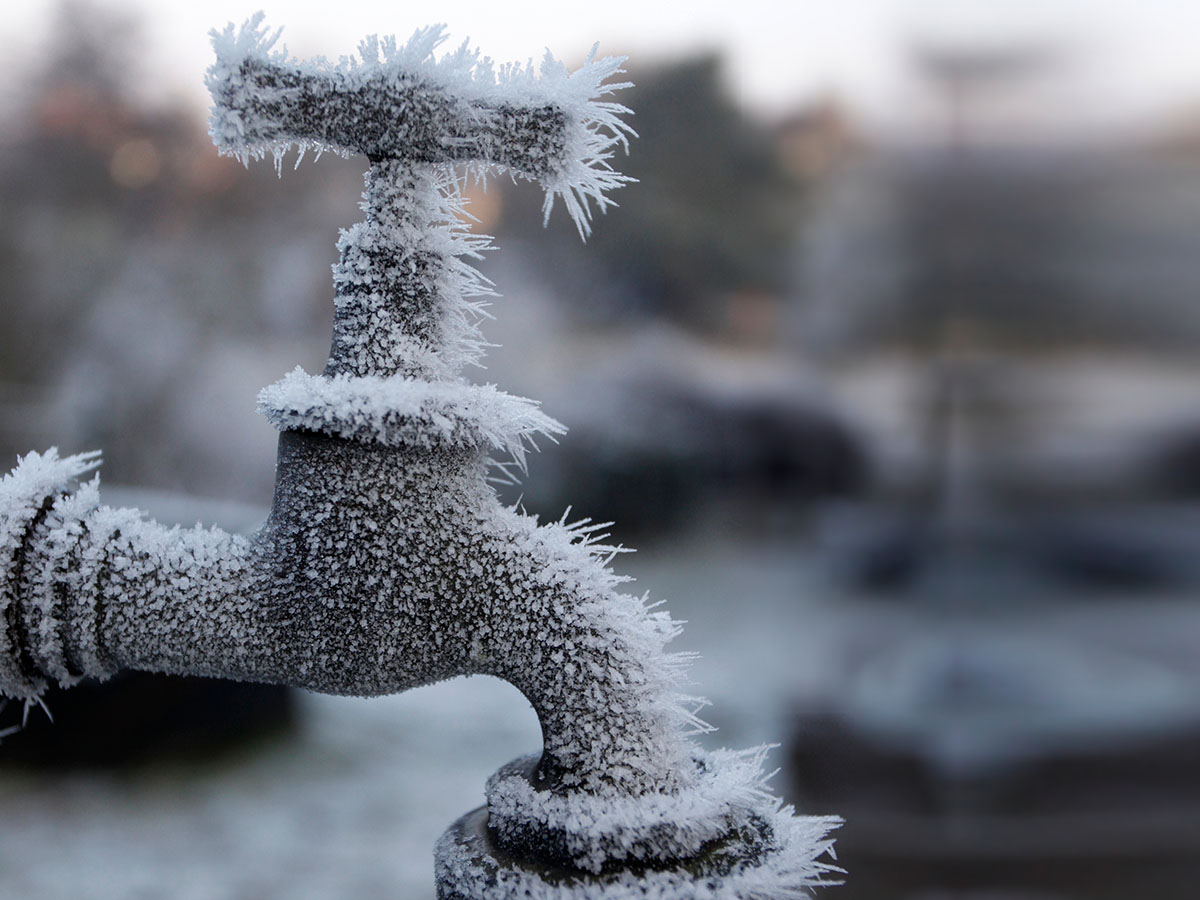Protecting Against Frozen Pipes in Winter: Pro Advice
Protecting Against Frozen Pipes in Winter: Pro Advice
Blog Article
What're your ideas about How to Prevent Your Pipes From Freezing?

Winter can ruin your plumbing, specifically by freezing pipes. Below's exactly how to avoid it from taking place and what to do if it does.
Introduction
As temperatures decline, the threat of frozen pipes rises, potentially causing costly repairs and water damages. Recognizing exactly how to stop icy pipes is crucial for property owners in cold environments.
Prevention Tips
Protecting prone pipelines
Cover pipelines in insulation sleeves or make use of heat tape to protect them from freezing temperatures. Concentrate on pipelines in unheated or external locations of the home.
Heating techniques
Maintain indoor rooms effectively warmed, particularly areas with plumbing. Open up closet doors to allow cozy air to distribute around pipes under sinks.
Just how to determine frozen pipelines
Seek decreased water circulation from taps, uncommon odors or sounds from pipes, and noticeable frost on subjected pipelines.
Long-Term Solutions
Structural changes
Think about rerouting pipes away from outside walls or unheated locations. Add additional insulation to attics, cellars, and crawl spaces.
Updating insulation
Purchase top quality insulation for pipes, attic rooms, and wall surfaces. Proper insulation assists maintain regular temperature levels and reduces the threat of frozen pipelines.
Protecting Outside Pipes
Garden hoses and exterior taps
Separate and drain pipes garden hoses prior to winter. Set up frost-proof faucets or cover outside faucets with insulated caps.
Recognizing Icy Pipes
What causes pipelines to freeze?
Pipes freeze when subjected to temperatures below 32 ° F (0 ° C) for prolonged durations. As water inside the pipelines ices up, it expands, putting pressure on the pipeline wall surfaces and potentially triggering them to burst.
Risks and damages
Icy pipes can lead to water system disruptions, residential property damages, and expensive fixings. Burst pipelines can flood homes and cause considerable structural damages.
Signs of Frozen Piping
Determining icy pipes early can stop them from rupturing.
What to Do If Your Pipelines Freeze
Immediate activities to take
If you presume frozen pipes, maintain faucets open to alleviate pressure as the ice melts. Use a hairdryer or towels soaked in hot water to thaw pipelines slowly.
Verdict
Protecting against frozen pipes calls for positive steps and fast actions. By understanding the reasons, indications, and safety nets, property owners can shield their pipes during winter.
Helpful Tips to Prevent Frozen Pipes this Winter
UNDERSTANDING THE BASICS: WHY PIPES FREEZE AND WHY IT’S A PROBLEM
Water freezing inside pipes is common during the winter months, but understanding why pipes freeze, and the potential problems it can cause is crucial in preventing such incidents. This section will delve into the basics of why pipes freeze and the associated problems that may arise.
THE SCIENCE BEHIND FROZEN PIPES
When water reaches freezing temperatures, it undergoes a physical transformation and solidifies into ice. This expansion of water as it freezes is the primary reason pipes can burst. As the water inside the pipe freezes, it expands, creating immense pressure on the walls. If the pressure becomes too great, the pipe can crack or rupture, leading to leaks and water damage.
FACTORS THAT CONTRIBUTE TO PIPE FREEZING
Low Temperatures: Extremely cold weather, especially below freezing, increases the risk of pipes freezing. Uninsulated or Poorly Insulated Pipes: Pipes located in unheated areas, such as basements, crawl spaces, or attics, are more prone to freezing. Insufficient insulation or lack of insulation altogether exacerbates the problem. Exterior Wall Exposure: Pipes running along exterior walls are susceptible to freezing as they encounter colder temperatures outside. Lack of Heating or Temperature Regulation: Inadequate heating or inconsistent temperature control in your home can contribute to frozen pipes. PROBLEMS CAUSED BY FROZEN PIPES
- Pipe Bursting: As mentioned earlier, the expansion of water as it freezes can cause pipes to burst, resulting in significant water damage.
- Water Damage: When pipes burst, it can lead to flooding and water damage to your property, including walls, ceilings, flooring, and personal belongings.
- Structural Damage: Prolonged exposure to water from burst pipes can compromise the structural integrity of your home, leading to costly repairs.
- Mold and Mildew Growth: Excess moisture from water damage can create a favorable environment for mold and mildew growth, posing health risks to occupants.
- Disrupted Water Supply: Frozen pipes can also result in a complete or partial loss of water supply until the issue is resolved.
WHY CERTAIN PIPES ARE MORE PRONE TO FREEZING
- Location: Pipes located in unheated or poorly insulated areas, such as basements, crawl spaces, attics, or exterior walls, are at higher risk of freezing.
- Exterior Pipes: Outdoor pipes, such as those used for irrigation or exposed plumbing, are particularly vulnerable to freezing as they are directly exposed to the elements.
- Supply Lines: Pipes that carry water from the main water supply into your home, including the main water line, are critical to protect as freezing in these lines can affect your entire plumbing system.
- Underground Pipes: Pipes buried underground, such as those connected to sprinkler systems or outdoor faucets, can be susceptible to freezing if not properly insulated.
https://busybusy.com/blog/helpful-tips-to-prevent-frozen-pipes-this-winter/

I'm very taken with Winter Plumbing Precautions: Preventing Frozen Pipes and I really hope you enjoyed the new blog posting. For those who enjoyed our article please don't forget to share it. Bless you for being here. Don't hesitate to come visit our website back soon.
Book Today Report this page